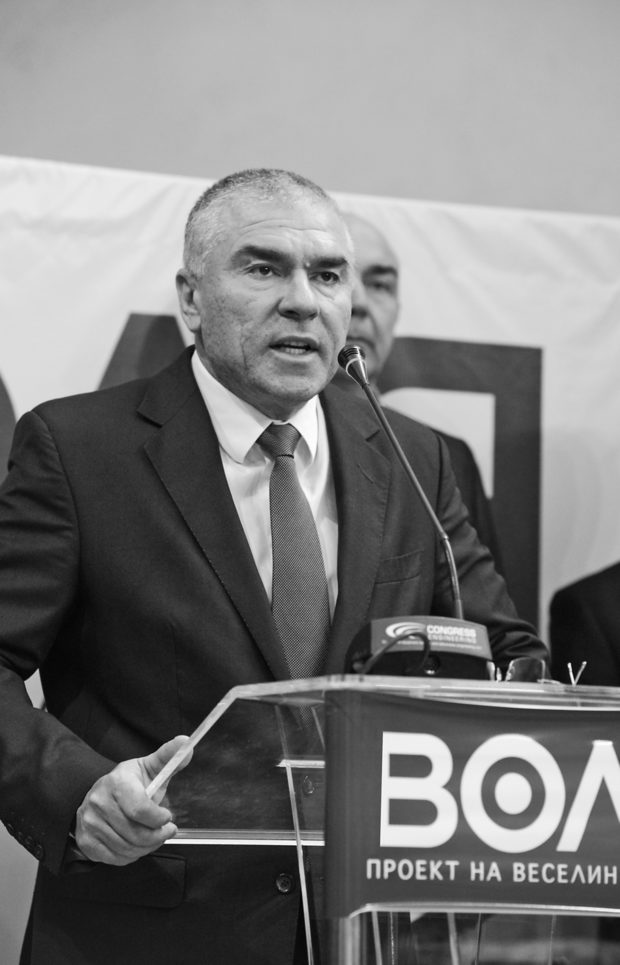"Others promise, I prove with my doings", claims Veselin Mareshki, in an attempt to echo the words of famous Bulgarian national revolutionary from the times of the late Ottoman rule Vasil Levski, who famously said that "We need deeds, not words". The businessman from the Black Sea port city of Varna has definitely managed to carve himself an image of a doer. In 25 years, he managed to create the largest network of pharmacies in the country - more than 400 (although, according to Bulgarian law, no single person can own more than four pharmacies), bought up his main supplier and, in recent years, opened up a fast-growing chain of petrol stations that sells 10 to15 percent below its competitors' prices.
And as recently as in the last presidential elections, Mr Mareshki turned his business success into a political victory. After the first round of the election he was running fourth, with more than 427,000 votes in his favor, which gave him the comfortable 11.17% of the vote. Mr Mareshki claimed, rightfully to some extent, that he was the top majoritarian candidate, as the three contenders before him were party nominations. It was then, just after the official announcement of the election results, that Mr Mareshki said he is launching his own political party to fight 'the status quo'. The party would be later launched as Volya (Bulgarian for "will") and it would gather various semi-known figures from Bulgaria's public life, most of them previously affiliated to other political formations.
According to polls, Volya will certainly pass the 4% threshold and enter parliament in the March elections. And, as Mr Mareshki himself has said, his faction doesn't care who it will team up with, because it is only important that it "proves itself through actions". Yet, a look into the businessman's past shows who his preferred coalition partner will be.
Although Mr Mareshki claims he has never benefited from political protection, facts speak otherwise. During the first Borissov government (2009 - 2013) the cabinet appointed in succession two people associated with the businessman as heads of the Bulgarian Drug Agency, while his own aunt and his pharmacies' lawyer also got employed by the government agency. The two heads of the agency served as a penal unit for Mr Mareshki's competitors in the medications distribution and retail sector - 13 pharmacies unrelated to the Varna businessman got their licences withdrawn by the agency for violations such as having no permanent ramp for wheelchairs. Although the current head of the agency had alerted the Prosecutor's Office about all the mischiefs of her predecessors, the anti-corruption prosecutors found no "organized crime group" to have acted on behalf of Mr Mareshki and his associates in the Drug Agency, but only "unloyal practices", i.e a case of unfair competition with possible administrative repercussions, not criminal ones.
Another case that speaks for itself is the personal conversation between ex-prime minister Boyko Borissov and Mr Mareshki in early 2013, when the businessmen was quickly persuaded to finance a failing football club from Plovdiv in the days before the election. In return, the businessman received around 4.5 mn euro) which the Military Medical Academy of Sofia owed his company. To "help" failing football clubs strike lucrative sponsorship deals with businesspeople is an old Bulgarian political trick of getting these businesspeople pay back for previous favors.
So, in the face of Mr Mareshki, Boyko Borissov's GERB may have found a useful ally for the next government. Cheap oil and medications sell instant political hope to the disillusioned Bulgarian pensioners and working class. However, the anti-status quo image of Mr Mareshki may hardly amount to anything more than a temporary phenomenon that may not last until the next election.
"Others promise, I prove with my doings", claims Veselin Mareshki, in an attempt to echo the words of famous Bulgarian national revolutionary from the times of the late Ottoman rule Vasil Levski, who famously said that "We need deeds, not words". The businessman from the Black Sea port city of Varna has definitely managed to carve himself an image of a doer. In 25 years, he managed to create the largest network of pharmacies in the country - more than 400 (although, according to Bulgarian law, no single person can own more than four pharmacies), bought up his main supplier and, in recent years, opened up a fast-growing chain of petrol stations that sells 10 to15 percent below its competitors' prices.
And as recently as in the last presidential elections, Mr Mareshki turned his business success into a political victory. After the first round of the election he was running fourth, with more than 427,000 votes in his favor, which gave him the comfortable 11.17% of the vote. Mr Mareshki claimed, rightfully to some extent, that he was the top majoritarian candidate, as the three contenders before him were party nominations. It was then, just after the official announcement of the election results, that Mr Mareshki said he is launching his own political party to fight 'the status quo'. The party would be later launched as Volya (Bulgarian for "will") and it would gather various semi-known figures from Bulgaria's public life, most of them previously affiliated to other political formations.












